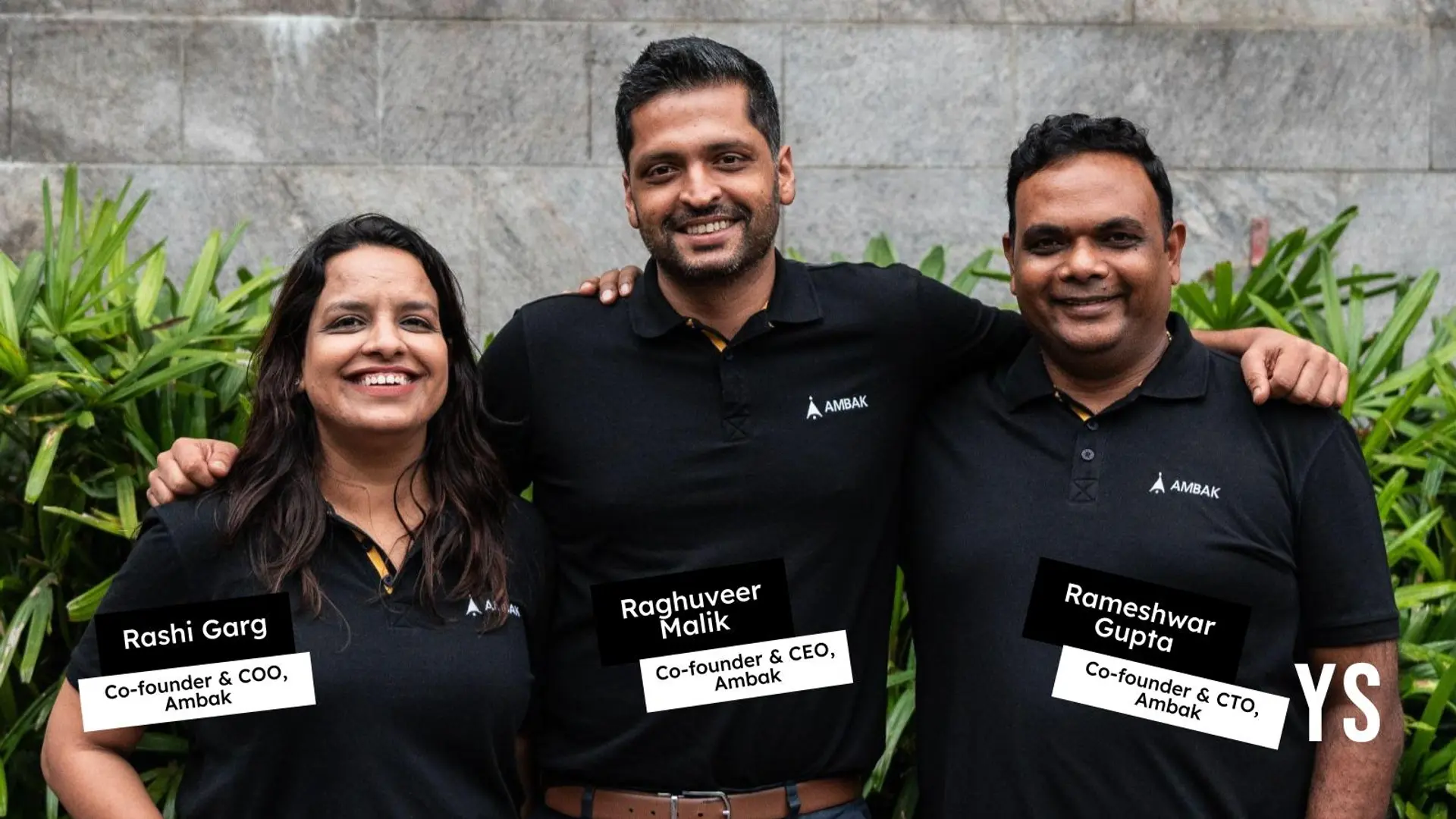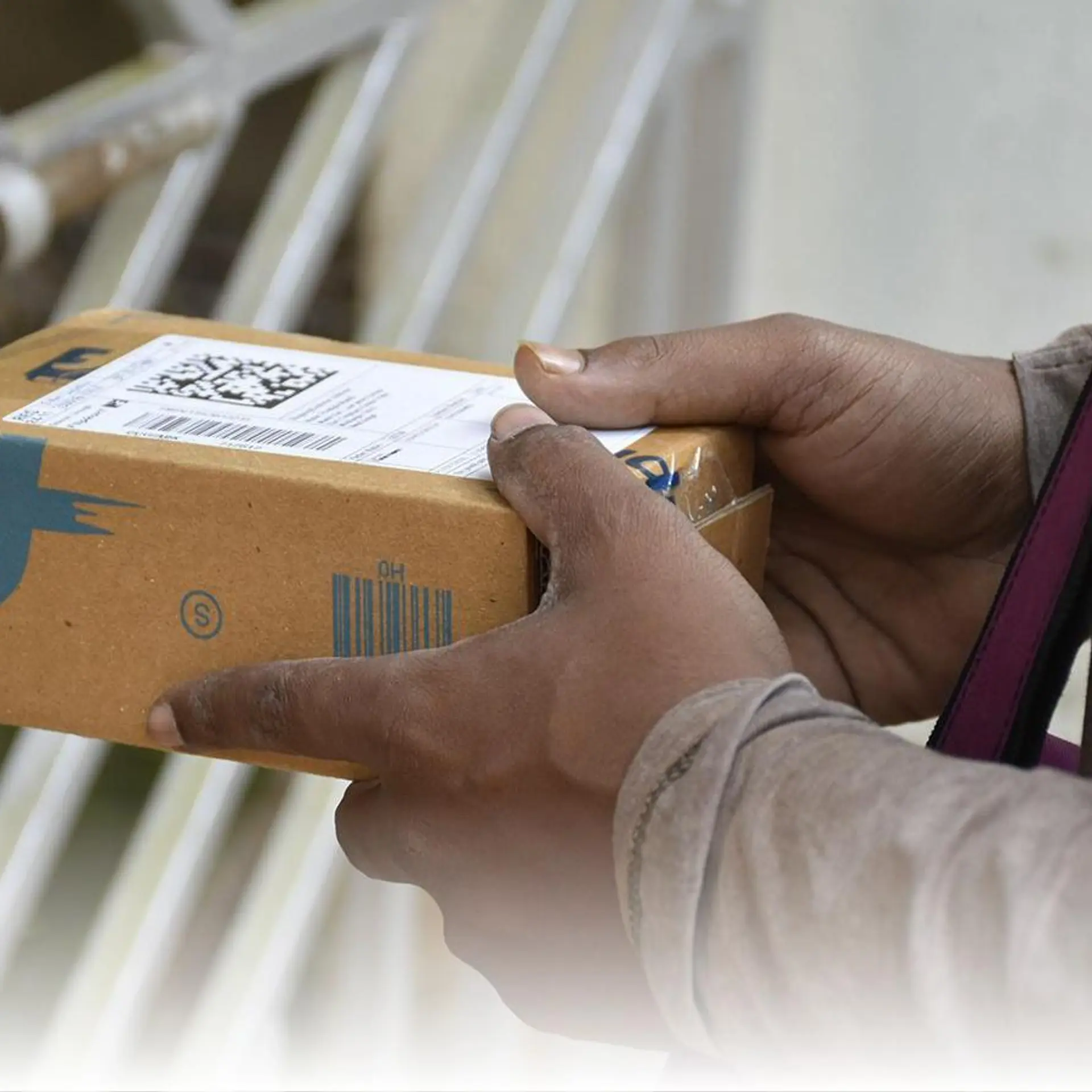Delivery after delivery, CampusKhana is driving away students' hunger pangs in Indore's colleges
CampusKhana delivers food, groceries, and fruits to educational institutes on the outskirts that lack access to online deliveries; the startup now plans to expand its footprint to Ahmedabad.
At a glance:
Startup: CampusKhana
Founders: Amit Ranjan and Monica Dua
Year it was founded: 2015
Where is it located: Indore
The problem it solves: Delivers food, fruits, and grocery to educational institutes
Sector: Foodtech
Funding: Bootstrapped
Hungry in the city? Foodtech giants Zomato and Swiggy can come to the rescue. But what if you are not in a metro, or in the outskirts of a small city?
Technology is yet to really disrupt the lives of people living in India’s smaller towns and cities. Coming face to face with a similar situation led Amit Ranjan to start a foodtech platform in Indore, a platform that caters to educational institutes on the city’s outskirts where students have little or no access to food delivery.
Launched in December 2015 by Amit Ranjan and Monica Dua, both then 27 years old, foodtech aggregator CampusKhana started its journey by delivering food to IIM Indore. In the last two years and seven months, the online platform has diversified into fruits and grocery delivery, and reportedly delivered more than 16,000 orders. CampusKhana now delivers to five educational institutes and Silicon City in Indore.
Amit, says: “We are a technology firm that facilitates transactions between restaurants, fruit stores, grocery outlets, and end users. We also own our own fleet of delivery agents to ensure uniform user experience and to ensure quality checks.”
The back story
The failure to find an online player who would deliver a birthday cake to Amit’s sister studying in a medical college was the harbinger of the CampusKhana idea.
After discussions with students from different educational institutes, Amit realised that the issue was prevalent in many other educational institutes, as most premier institutes are located in Tier II cities, or on the outskirts, while a majority of online food aggregators delivered only in the main areas of cities. This real-life problem became the basis of his pilot.

He teamed up with former colleague Monica Dua, who was pursuing her MBA at IIM-Indore, and was experiencing similar problems. She came on board and the duo set up Campuskhana.
“We created a two-day training programme for all our delivery executives to ensure that users had a pleasant and uniform experience. We also conducted a few informal meetings at IIM-Indore to help create a buzz before the launch,” Amit recalls.
Amit is an electrical engineer turned liberal arts graduate. He is also an active blogger and started a blog called WakeIndiaNow in 2011. He has worked as a business analyst and product manager across different sectors. Next on his cards is an MBA from INSEAD to hone his entrepreneurial skills.
CampusKhana’s co-founder Monica pursued her engineering from Delhi Technological University and worked as business analyst for two years before focusing on an MBA degree.
Overcoming challenges
To get started, the co-founders zeroed down on an institute where they could pilot their idea. They made a list of 20 institutes, mostly engineering and management, based on factors such as other major competitors in the market, the number of students (at least 1,000) staying on campus, proximity to other educational institutes to scale, accessibility, and purchasing power of the target audience.
"While the first 4 factors are easy to gauge, there is no established data to compare the purchasing power of one institute over the other. We assumed that there would be some correlation between the fee charged by an institute and the purchasing power of the students. More an institute charges, richer is our target audience," Amit claims.
The last factor eliminated all the engineering colleges and we were left with management schools.
Among all the IIMs, IIM-Indore has one of the highest batch strengths due to its integrated programme along with the regular post-graduate and executive programmes. A few other institutes were also nearby. And CampusKhana decided to start its journey with IIM-Indore.
A major challenge was to optimise the delivery network as food order demands are not uniform, and undergo spikes during lunch and dinner time. Adequate staff was required to tackle such situations. But there was a catch. If they hired excess delivery agents for peak time, the workforce would be under-utilised more than 95 percent of the time. CampusKhana overcame this challenge by increasing staff for peak times, and diversified into grocery, fruit, and cake delivery so the staff was used during other hours.
The competitive foodtech sector
The foodtech industry has moved from only food delivery to home-cooked and chef-cooked food delivery. This trend is growing in India where a plethora of startups are endeavouring to satisfy the craving for homemade food. Holachef, Innerchef, Rocketchefs, Zupermeal, Kitchen’s Food and Cyberchef are some of the startups operating in this space.
As per research carried out by YourStory, till date this year, the foodtech sector has garnered investments of $523 million, including the latest Swiggy deal. Of this, Swiggy and Zomato together raised over $460 million. Compare this with 2017, when the sector saw investments of $257 million.
However, CampusKhana is not too worried about competition for now as the platform is striving to create a new market in the hyperlocal delivery space rather than taking on other players in existing markets.
“The greatest advantage that CampusKhana had was that our existence was our USP. Let me explain this. There was no competitor who was doing anything that we were doing. We were the pioneer of online food, grocery, fruit and cake deliveries in our space,” Amit claims.
Plans for the future
Going ahead, Campuskhana plans to expand its footprint to Ahmedabad and is in the process of rolling out its services from a new location. Having earlier experimented with subscription-based, co-branded meal-box deliveries, the next move for CampusKhana, says Amit, would be to establish its own cloud kitchen to serve fast food.
In terms of B2B, CampusKhana intends to empower partner restaurants by helping them manage their online presence via a deals and discount portal. This would help restaurants promote deals directly to the student community.
CampusKhana generates revenues by charging a certain fee on every order from partner restaurants and via advertisements on the portal. The platform also earns on delivery for orders not meeting the minimum amount.
Amit claims that the bootstrapped platform which was started with an initial investment of Rs 2.5 lakh, has been operationally profitable since inception and has, so far, generated revenues of Rs 43 lakh.
The platform currently has a 12-member team, including the founders, developers, an operations manager, interns, and delivery agents.
“In the last two years and seven months, we have piloted fruit, grocery, cake, and on-demand delivery. We have run pilot deliveries from KFC and Subway. At present, we are working with the results of these pilots to decide the future course of action,” Amit says.







